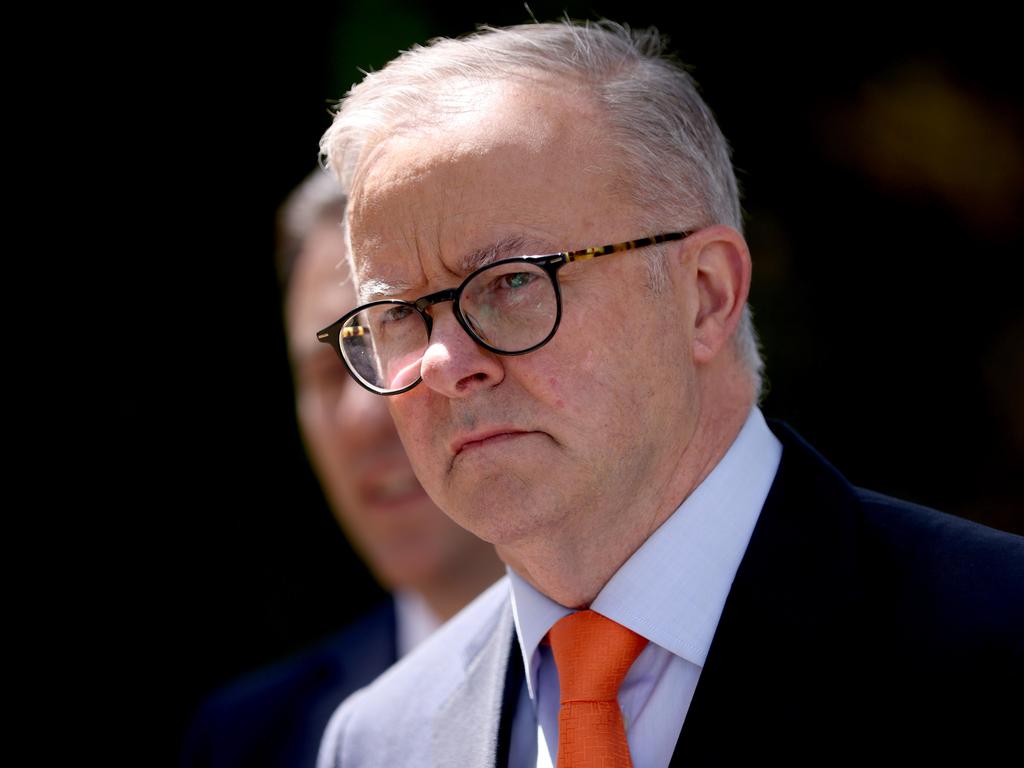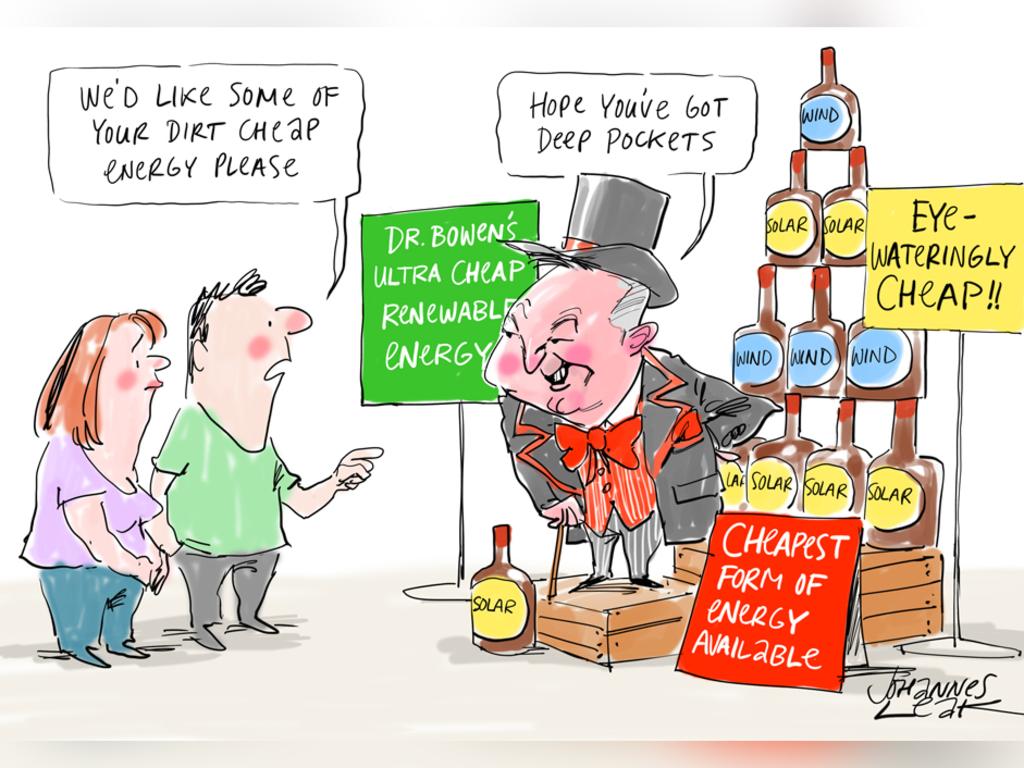Newspoll: Budget judged useless in making ends meet
Almost half of voters believe they will be worse off over the next 12 months following Labor’s budget, with the number who say it will be good for the economy at a record low.

Almost half of all Australian voters believe they will be worse off over the next 12 months following Labor’s first budget, with the number of people who believe it will be good for the economy at the lowest levels on record.
An exclusive Newspoll conducted for The Australian shows that Jim Chalmers’ budget last Tuesday was the most poorly received for helping the household budget since the Coalition’s 2014 failed austerity drive.
However, fewer than one in three people believed the Coalition would have done any better.
The exclusive post-budget poll shows that 55 per cent of people surveyed believed that the budget didn’t do enough to help with cost of living.
A total of 25 per cent of voters said the budget put too much emphasis on repairing the budget and not enough on attention to helping with cost of living.
Yet 31 per cent believed that it didn’t do enough on either repairing the deteriorating structural budget deficit or cost of living.
Only 6 per cent of voters said that it was too geared toward cost-of-living relief while 23 per cent said it struck the right balance on both.
On the headline measure of economic management, and with the government forced to defend its “bread-and-butter” approach, only 29 per cent of voters believed the early budget would be good for the economy.
This is the lowest level of support for a budget delivering a good outcome for the economy since Newspoll began surveying voter reaction to budgets.
Anthony Albanese and Treasurer Jim Chalmers have defended the budget as delivering spending restraint in an attempt to start the road to post-pandemic budget repair, while delivering almost $8bn in cost-of-living relief through extensions to childcare subsidies, paid parental leave and cheaper prescription medicines.
However, this has been overshadowed since the release of the budget by the grim outlook for the economy and inflation and the energy crisis that will inflict a 56 per cent increase to electricity bills over the next two years. Opposition Leader Peter Dutton has accused the government of breaking faith with Australians by failing to deliver on election pledges of wage growth and lowering electricity bills by a promised $275.
The budget has had mixed reaction from economists and the business lobby, with criticism that it failed to outline a strategy for longer-term budget repair with a structural deficit of about $50bn over time. When judged for its overall reception, 29 per cent of voters believed it would be bad for the economy.
This was the highest since the Coalition’s 2016 budget.
The worst was in May 2014 when 48 per cent of voters said the budget would be bad for the economy.
The first Labor budget since being elected in May was the first since 2019 to have not delivered big spending.
As a result, just 12 per cent of people believed this budget would make them better off. This was the lowest since 2014 – the first Coalition budget following the 2013 election that declared a budget “emergency” and proposed mass spending cuts – when just 5 per cent of voters believed they would be better off.
With the exception of the 2014 budget, the 47 per cent of people who said they would be worse off following this budget was the highest since the measure was first surveyed in 1999.
The number is not surprising considering the budget’s forecasts of higher energy prices and higher and more persistent inflation.
However, it suggests that the budget has failed to alleviate people’s concerns nor convinced voters that the Labor Party had a plan to ease cost of living pressures.
This was true for both Labor and Coalition voters with only 11 per cent of Coalition voters saying they would be better off and only 13 per cent of Labor voters saying the same.
In terms of being worse off, however, fewer Labor voters believed they would be worse off than Coalition voters, indicating that the budget was disproportionately favoured by Labor voters, but not by a large margin.
More Labor voters than Coalition voters believed the budget put too much emphasis on repairing the budget rather than cost of living.
Despite the Prime Minister’s claim of a focus on women in the budget, more female voters said they would be worse over men. Only 25 per cent of women believed the budget would be good for the economy compared to 32 per cent of men.
People aged over 50 were considerably more likely to believe they would be worse off financially than those aged 18 to 34 – 53 per cent compared to 36 per cent. For those aged between 35 and 49, the number was 46 per cent.
Just 34 per cent of voters believed the opposition would have delivered a better budget. This was consistent with the long term average.
The Newspoll was conducted between Thursday and Sunday and surveyed 1500 voters across Australia.








To join the conversation, please log in. Don't have an account? Register
Join the conversation, you are commenting as Logout